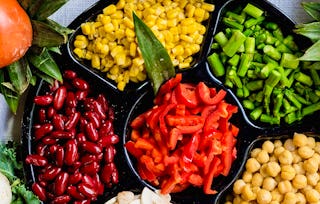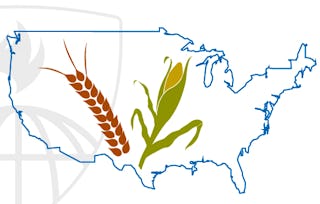What we eat and how we produce that food have significant effects on human health and the sustainability of our planet. But what is a ‘sustainable’ diet? A sustainable diet, as defined by the FAO, promotes health and well-being and provides food security for the present population while sustaining human and natural resources for future generations. This short course looks at the urgent need to address the sustainability of our food systems, including better understanding the complex relationship between diet and climate change. We’ll explore current research on dietary shifts needed in high, middle, and low-income countries to achieve both sustainability and food security goals and discuss evidence-based strategies to promote sustainable diets.

Ends soon: Gain next-level skills with Coursera Plus for $199 (regularly $399). Save now.

Public Health Perspectives on Sustainable Diets



Instructors: Roni Neff
20,216 already enrolled
Included with
(193 reviews)
What you'll learn
What is food system sustainability and resilience?
What is a "sustainable" diet - and why does it matter?
How can we make our food system more sustainable?
Skills you'll gain
Details to know

Add to your LinkedIn profile
4 assignments
See how employees at top companies are mastering in-demand skills

There are 3 modules in this course
Our food system is much more than a supply chain that brings food from the farm to your plate. What is a food system? How can thinking about food as a system help us understand and address the messy overlapping issues of diet, food production, planetary health and climate change? What does ‘sustainability’ mean, in the context of food systems, and is it the same as resilience? How has COVID-19 pandemic amplified the many challenges faced by vulnerable workers and consumers? Roni Neff addresses these questions – and many more – in this opening series of lectures.
What's included
5 videos3 readings1 assignment1 discussion prompt
What defines a sustainable diet? Why do sustainable diets matter? And what might sustainable diets look like in the US and around the world? The answers may surprise you. In this engaging and thought-provoking set of lectures, Brent Kim will address these questions and explain recent research that compares the impact of different diets on greenhouse gas emissions and water use across 140 countries.
What's included
4 videos1 reading1 assignment1 discussion prompt
In our final week, we will explore sustainable diets through the lens of a public health practitioner and registered dietitian. In this series of lectures, we’ll considering nutritional needs and why it is difficult to define a ‘sustainable’ diet for everyone. Then we’ll share evidence-based strategies for communicating about sustainable diets and how different sectors can play a role in advancing change. We hope you have enjoyed this short course! Please be sure to complete the post-course survey and leave us feedback on the Coursera platform.
What's included
4 videos2 readings2 assignments1 discussion prompt
Instructors

Offered by
Explore more from Public Health
 Status: Free Trial
Status: Free TrialUniversity of Michigan
 Status: Preview
Status: PreviewJohns Hopkins University
 Status: Free Trial
Status: Free TrialStanford University
 Status: Free Trial
Status: Free TrialUniversity of Michigan
Why people choose Coursera for their career




Learner reviews
193 reviews
- 5 stars
82.90%
- 4 stars
15.54%
- 3 stars
0.51%
- 2 stars
0.51%
- 1 star
0.51%
Showing 3 of 193
Reviewed on Mar 16, 2021
Great course that everyone should be taking. It really highlights the effects of food on the environment and what methods we can do to prevent and combat climate change. I love the course
Reviewed on Jan 16, 2021
Good, concise, effective information. Great lectures and data presentation. Thanks!
Reviewed on Apr 30, 2021
informative, inviting, knowledgeable course on making this a better world in terms of bringing about a sustainable healthier environment for all of us and our planet.
Frequently asked questions
To access the course materials, assignments and to earn a Certificate, you will need to purchase the Certificate experience when you enroll in a course. You can try a Free Trial instead, or apply for Financial Aid. The course may offer 'Full Course, No Certificate' instead. This option lets you see all course materials, submit required assessments, and get a final grade. This also means that you will not be able to purchase a Certificate experience.
When you purchase a Certificate you get access to all course materials, including graded assignments. Upon completing the course, your electronic Certificate will be added to your Accomplishments page - from there, you can print your Certificate or add it to your LinkedIn profile.
Yes. In select learning programs, you can apply for financial aid or a scholarship if you can’t afford the enrollment fee. If fin aid or scholarship is available for your learning program selection, you’ll find a link to apply on the description page.
More questions
Financial aid available,






